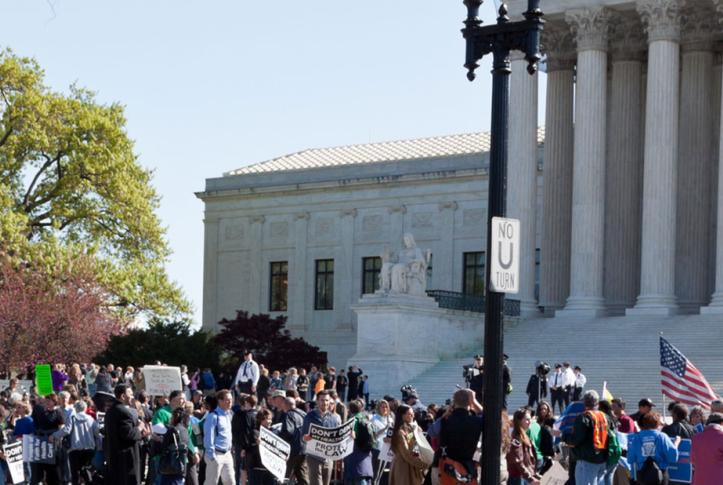While Congress and many Americans are taking an August break, lawsuits about the Affordable Care Act (ACA) grind on in the federal courts. In this post, we review the current status of the major cases, including those challenging the validity of the ACA and related regulations and those challenging Trump administration initiatives that undermine the ACA.
Challenges to the ACA and Its Regulations
Texas v. United States is the most important lawsuit currently before the courts. In it, Texas and 17 other states, joined by two individuals, claim that the ACA’s individual mandate is unconstitutional because the Supreme Court had upheld the mandate as a tax only in 2012. Then because the 2017 tax reform law zeroed out the amount of the tax, the ACA must be invalidated because the entire law depends on the mandate. The Trump administration agrees with the plaintiffs and is not defending the law.
California and 20 other states, along with the U.S. House of Representatives, have intervened to defend it. They argue that the plaintiffs cannot challenge the law in federal court because they are not injured by the now-toothless mandate. They also assert that the mandate remains constitutional and that the rest of the ACA should stand even if the courts invalidate the mandate.
Judge Reed O’Connor, a Texas federal judge, ruled for the plaintiffs, declaring the entire ACA to be invalid. California appealed to the Fifth Circuit Court of Appeals and oral arguments were held in July. Two of the three appellate court judges seemed inclined to accept some or all of Texas’s arguments. A decision is expected soon. If the Fifth Circuit upholds Judge O’Connor’s decision, the case will almost certainly be sent to the Supreme Court.
In another lawsuit brought by Texas, six other Republican-led states, and three religious entities, Judge O’Connor entered a nationwide injunction blocking provisions of an Obama-era regulation that prohibits discrimination based on gender identity and termination of pregnancy. The regulation implements section 1557 of the ACA, which prohibits discrimination on various grounds, including sex, in federally funded health programs or activities. Judge O’Connor accepted the plaintiffs’ claims that the regulation misinterprets the law’s prohibition of sex discrimination and violates their rights under the Religious Freedom Restoration Act. The Trump administration declined to defend the regulation and recently promulgated proposed regulations that would, among many other changes, eliminate the challenged provisions. These regulations are likely to be challenged once finalized. In the interim, several other courts have held that section 1557 itself prohibits discrimination against transgender individuals.
Challenges to Trump Administration Regulations
Several cases are challenging Trump administration rules expanding access to coverage that is not subject to ACA requirements. For instance, the administration’s association health plan rule allows associations to cover both small groups and “working owners” (defined as individual sole proprietors without any employees). The associations are only required to comply with the ACA large-group market rules, which impose far fewer consumer protections than the small-group and individual-market rules.
New York and 11 other states sued over this rule, claiming it violates the ACA and the Employee Retirement Income Security Act of 1974 (ERISA), which governs employer-sponsored health plans. Judge John Bates held that the rule violates ERISA and the ACA because it extends association coverage to working owners and allows associations based only on geographic proximity, which may be formed for the sole purpose of offering health coverage. The federal government appealed to the D.C. Circuit Court of Appeals. Briefs have been filed by both sides; the case is awaiting oral argument.
The Association for Community Affiliated Plans (an association of community insurers) and several patient advocacy organizations filed a lawsuit challenging the Trump administration’s short-term limited duration insurance (STLDI) rule. STLDI is typically used as insurance for filling short gaps when people lack comprehensive coverage and is not subject to federal health insurance protections. The Obama administration had limited STLDI plans to three months, but the Trump administration rule permits STLDI to last for any time period less than a year and to be renewed for up to three years. The plaintiffs argued that the new rule’s definition of STLDI is contrary to the text and structure of the ACA’s market reforms, and that the rule’s definitions of “short-term” and “limited duration” are arbitrary and capricious. Judge Leon of the D.C. District Court held that the new rule’s definition was not contrary to the law and within the administration’s discretion. The plaintiffs have appealed to the D.C. Circuit but no briefs have yet been filed.
Five major cities and Democracy Forward have filed a lawsuit asserting that various administrative actions taken by the Trump administration — particularly its 2019 insurance market rules — were intended to sabotage the ACA and are contrary to the Administrative Procedure Act and the President’s constitutional obligation to “take Care that the Laws be faithfully executed.” This case is still being briefed in federal district court in Maryland.
Supreme Court to Hear Risk-Corridor Case
Finally, the Supreme Court will hear at least one other ACA case in the 2019 term. Because of the uncertainties insurers faced under the ACA’s new market rules, the law established a temporary three-year “risk corridor” program. Under this program, the federal government would partially cover large losses and partially recover large profits experienced by insurers. Following significant losses in the early years of the marketplaces and restrictive appropriations riders adopted by Congress, insurers sued to recover more than $12 billion in unpaid risk corridor payments.
Approximately 50 lawsuits, including a class action of about 150 insurers, have been filed in the Court of Federal Claims. These lawsuits had mixed success in the lower court. In June 2018, the Federal Circuit held that while the ACA required insurers to be paid full risk corridor payments, Congress’s subsequent appropriations riders eliminated this obligation and the insurers had no contractual right to recovery. The Supreme Court has agreed to review this decision, with oral arguments slated to be held potentially in December 2019.




